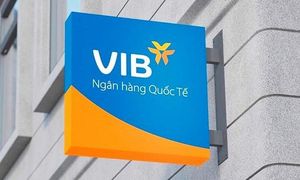On August 7, 2024, Turkish authorities imposed a ban on the popular online gaming platform Roblox, shortly after blocking access to Instagram. This decision has ignited widespread discussion about censorship and digital freedom within Turkey, particularly among the younger population and game developers who heavily rely on the platform for creative expression and income.
The Adana 6th Criminal Court of Peace issued the ruling following claims of inappropriate content on Roblox, outlining concerns over potential exploitation of minors. According to reports, the country’s telecommunications regulator, the Information Technologies and Communication Authority (BTK), indicated this decision was prompted by content deemed harmful to children. A representative from Turkey’s Directorate of Communications mentioned, "The concerns largely revolved around reports of sexual and exploitative content on the platform. This raised alarms about child safety, prompting heightened scrutiny of online spaces where children are active."
This ban isn't isolated; rather, it's part of Turkey's increasing trend of internet censorship. Just days before the Roblox ruling, Instagram was sidelined for allegedly censoring condolence posts related to the killing of Palestinian leader Ismail Haniyeh. Critics have remarked on the string of bans targeting social media and online gaming platforms, questioning the underlying motives attributed to the Turkish government. Social media users expressed deep frustration at the clampdown on freedoms, citing the economic impact on many developers.
Roblox is more than just a gaming platform. With millions of users worldwide, it allows individuals, particularly children and teenagers, to create and share games—a fundamental draw for its dedicated user base. The recent ban, which cuts off access to this expansive digital world, is expected to have severe repercussions, particularly as Turkey ranks fifth globally for the number of active Roblox users.
Echoing sentiments of despair among users, game developers voiced concerns on social media, with one user lamenting, “This is devastating! Many talented developers depend on Roblox as their source of income. What will we do now?” This sentiment captures the anxiety felt by many who have seen their livelihood abruptly disrupted.
The mayor of Istanbul, Ekrem İmamoğlu, strongly criticized the ban, calling it “incomprehensible.” He suggested the decision-makers are out of touch with the realities of digital engagement and economic opportunity presented by platforms like Roblox: “Those who make these decisions lack knowledge of today's world, economy, and technology.” İmamoğlu's remarks situate the ban within broader tensions over governmental control and freedom of expression.
Following the ban, many parents are left perplexed about how to explain this sudden change to their children. Conversations about online safety and available platforms have intensified, and heartfelt appeals online have surfaced demanding the unblocking of services. Public discourse has shifted to spotlight the dire impacts of excessive censorship on cultural and creative growth, particularly for the younger generation.
A significant component of the criticism surrounding the ban touches on the fact it undermines artistic potential. Turkey has produced several successful game developers who have found their footing and financial stability using Roblox as a platform. The abrupt removal of access to this resource places many of these creative professionals in jeopardy, raising concerns over their futures.
While Roblox officials have confirmed awareness of the ban, they have yet to outline specific strategies for resolution. “Our priority remains safety and civility as we provide opportunities for users to engage and create,” said a representative from Roblox.
Several groups, including digital rights advocates, have pressed for clarity around the ban, urging authorities to reconsider. The broader concern lies within Turkey's record of enforcing strict digital governance and the risk of continued erosion of freedom of expression rights. According to recent reports, Turkish authorities had previously restricted access to more than 137,000 web pages last year alone, signaling steering toward even tighter online monitoring.
With the growing scrutiny over content moderation practices and their impact on digital freedom, the Roblox ban appears to signify not only governmental limitations on gaming but also broader societal values concerning creativity, children’s rights, and autonomy over digital spaces. The fact the ban coincides with increased regulation of social media threads together questions about censorship and control over the narrative, particularly when it pertains to youth engagement.
Without pressing clarity from the Turkish government on the rationale behind the bans, players, developers, and parents alike will continue to grapple with the consequences. Dynamic companies like Roblox represent so much more than just gaming; they inspire community building, creativity, and self-expression. Their ban raises chilling signals about the potential futures of online gaming and the unleashed creativity of millions of willing participants.
What happens next remains to be seen as users hope for regulations and feedback from their government, pushing back against what they perceive as excessive and outdated governance. For now, all eyes are on Turkey, watching how these developments will shape the ever-evolving digital landscapes.



